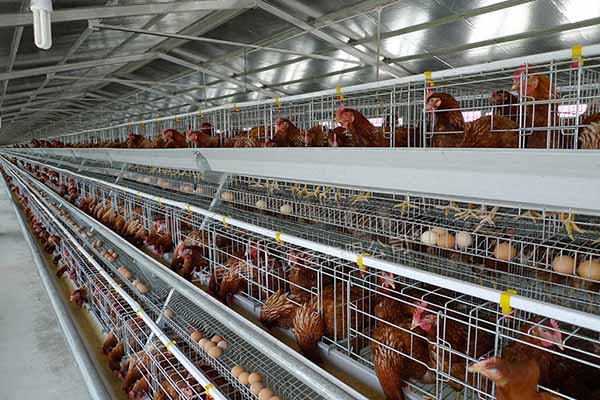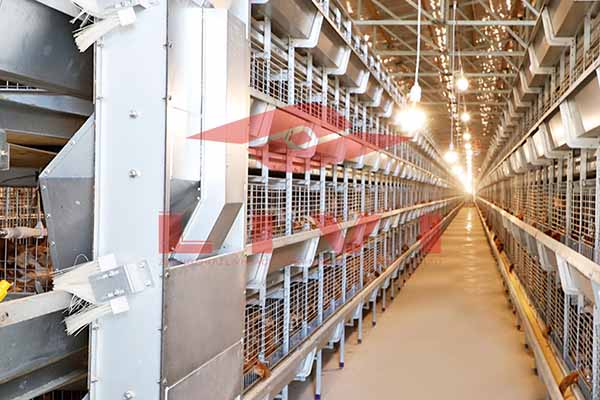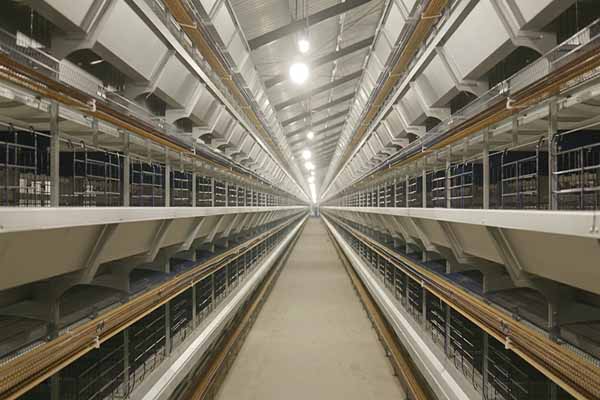Poultry House Climate Control Solutions: Keeping Your Birds Comfortable and Productive
Effective climate control in poultry houses is crucial for maintaining the health and productivity of birds. In this article, we delve into the various solutions available for achieving optimal poultry house climate control. Whether you’re a poultry farm owner or an investor, understanding these solutions can help you make informed decisions for your farm’s success.

Understanding the Importance of Climate Control
Poor climate conditions in poultry houses can lead to a range of issues, including reduced egg production, higher mortality rates, and increased risk of disease outbreaks. According to a study published in the Journal of Poultry Science, maintaining optimal temperature and humidity levels can improve bird health and productivity by up to 15%.
Here are some key factors to consider when implementing climate control solutions in your poultry house:
- Temperature control: The ideal temperature range for poultry houses is typically between 70-75°F (21-24°C) for chickens. Higher temperatures can stress the birds, while lower temperatures can cause respiratory issues and reduced feed conversion rates.
- Humidity control: Maintaining the right humidity levels is equally important. Relative humidity should be kept between 40-70%. Excessively high humidity can increase the risk of disease, while low humidity can lead to excessive water loss and reduced growth rates.
- Air quality: Proper ventilation is crucial for maintaining good air quality in poultry houses. Ammonia and carbon dioxide levels should be monitored, and adequate ventilation should be provided to minimize these harmful gases.
The Best Climate Control Solutions for Poultry Houses
There are various climate control solutions available to help maintain ideal conditions in your poultry house. Here are some of the most effective options:
Heating Systems
- Electric heaters: Offer precise temperature control but can be expensive to operate.
- Natural gas heaters: More energy-efficient than electric heaters but may require a natural gas supply.
- Heat lamps: Convenient for small poultry houses but can be unsafe and less energy-efficient for larger operations.
Cooling Systems
- Evaporative coolers: Use water to lower air temperature and are highly energy-efficient.
- Air conditioning units: Provide precise control over temperature and humidity but can be expensive to install and operate.
Humidity Control Systems
- Natural ventilation: Simple and cost-effective but can be less reliable in extreme weather conditions.
- Dehumidifiers: Remove excess moisture from the air and can help control disease outbreaks.
- Humidifiers: Add moisture to the air during dry conditions to maintain optimal humidity levels.
For the best results, it’s  essential to combine various climate control solutions to create a comprehensive system that addresses all your needs.
essential to combine various climate control solutions to create a comprehensive system that addresses all your needs.
Why Choose LIVI Mechanical for Your Poultry House Climate Control Solutions?
LIVI Mechanical is a leading provider of poultry house climate control solutions, offering customized designs and high-quality equipment to meet the specific needs of your farm. Here’s what sets us apart:
- Expertise: Our team of experienced professionals has extensive knowledge of poultry house climate control, ensuring that your farm’s needs are met effectively.
- Customized solutions: We offer tailored design and installation services to ensure your climate control system is optimized for your specific requirements.
- Quality equipment: We provide top-of-the-line climate control equipment that is reliable and energy-efficient.
- Excellent customer service: Our dedicated support team is always available to assist you with any questions or concerns you may have.
Don’t miss out on the opportunity to improve your poultry farm’s productivity and profitability. Contact LIVI Mechanical today for a free poultry house climate control design and equipment quote.
and profitability. Contact LIVI Mechanical today for a free poultry house climate control design and equipment quote.
For more information, please contact us at:
- Email: [email protected]
- Phone: +1 (123) 456-7890




